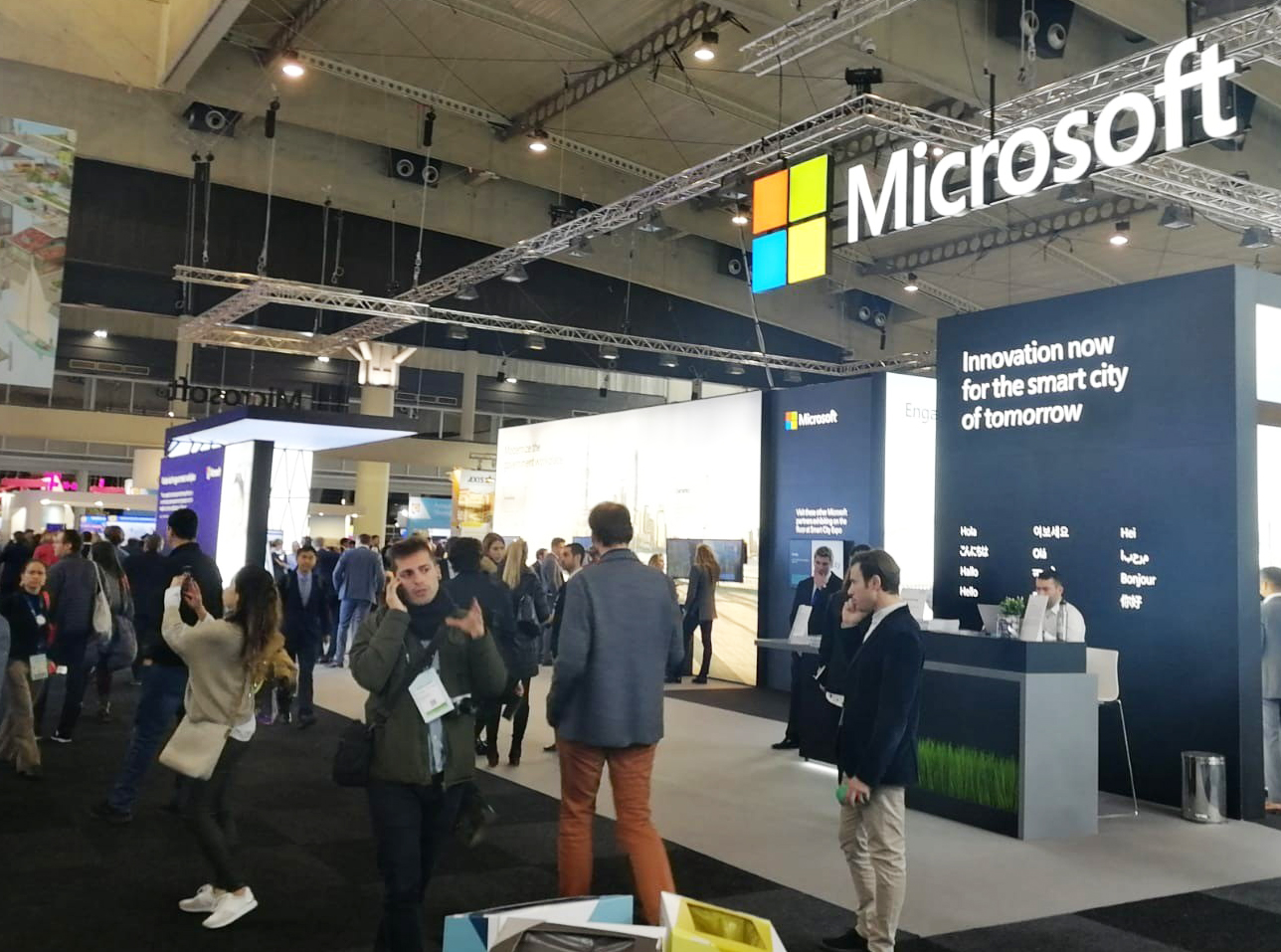

At Smart City Expo this year, Telensa and Microsoft demonstrated the power of a platform approach to smart city applications and data insights.
The inevitable move from vertical integration to data platforms
Smart city device and application infrastructure is evolving. Today there are a few highly efficient vertically integrated applications, like Telensa PLANet smart street lighting, that are deployed at mass scale. They provide real value to the city department running that operation. But as more applications reach mass scale, this vertical integration begins to work against using data across city departments to become more efficient and offer new services. In particular, data integration and device management costs can multiply. The evolution will be towards a universal data fabric and unified device management, so that adding more mass scale apps will make the data and device infrastructure more efficient. It will in turn simplify the integration of new apps and drive data-driven strategies. This is precisely what Microsoft Azure IoT Central enables.
Our Smart City Expo demo
To demonstrate the benefits of a common data platform for smart city apps, we employed Microsoft IoT Central to get PLANet smart lighting system working with data from a traffic monitoring system in order to make highway lighting more efficient. This sophisticated solution was developed with fellow Microsoft partner Kainos in a matter of weeks.
The objectives were clear:
- stop wasting energy lighting empty highways
- automatically adapt lighting levels using traffic sensor data
- use analytics to ensure that lighting changes do not distract drivers
- visualize energy and carbon savings
This is what we built
We worked with our development partner Kainos to build a solution that combines street lighting controls and traffic monitoring applications to deliver energy savings through traffic adaptive lighting. What’s different is that we developed this integration by running both applications through Azure IoT Central, which provided a common data fabric, analytics, device management and visualization.

Traffic volumes are constantly changing. Adapting light levels in direct response to this data would distract drivers (constant flip-flop) and increase communication costs (lots of wireless commands). Analytics translate fluctuating traffic data into a small number of subtle, policy-based dimming instructions. Using intelligence from PLANet and algorithms to limit the number of dimming/un-dimming events so that drivers do not notice and that safety is not compromised.
The result was a simple and rapid development, but the most important part is that IoT Central makes future additions simpler yet more powerful – the opposite of today’s complex bespoke integrations.
Deployed in the UK
This solution is running live, controlling the streetlights around Telensa HQ in Cambridge UK. We set up a traffic adaptive group and a passive group of lights so we could measure the energy savings. And we used a live radar sensor deployed nearby to provide the traffic data feed.

The result: 58% energy savings
The dashboard in IoT Central provides a real-time snapshot of energy savings, dimming events and locations – an ideal operations management tool. Side-by-side comparison of energy use between one light in the adaptive group and one in the passive (control) group shows 58% energy savings.

Be the first to read Telensa's next blog post, sign up for notifications here:
Topics: Smart cities, IoT, smart streetlights, smart city events, AI

